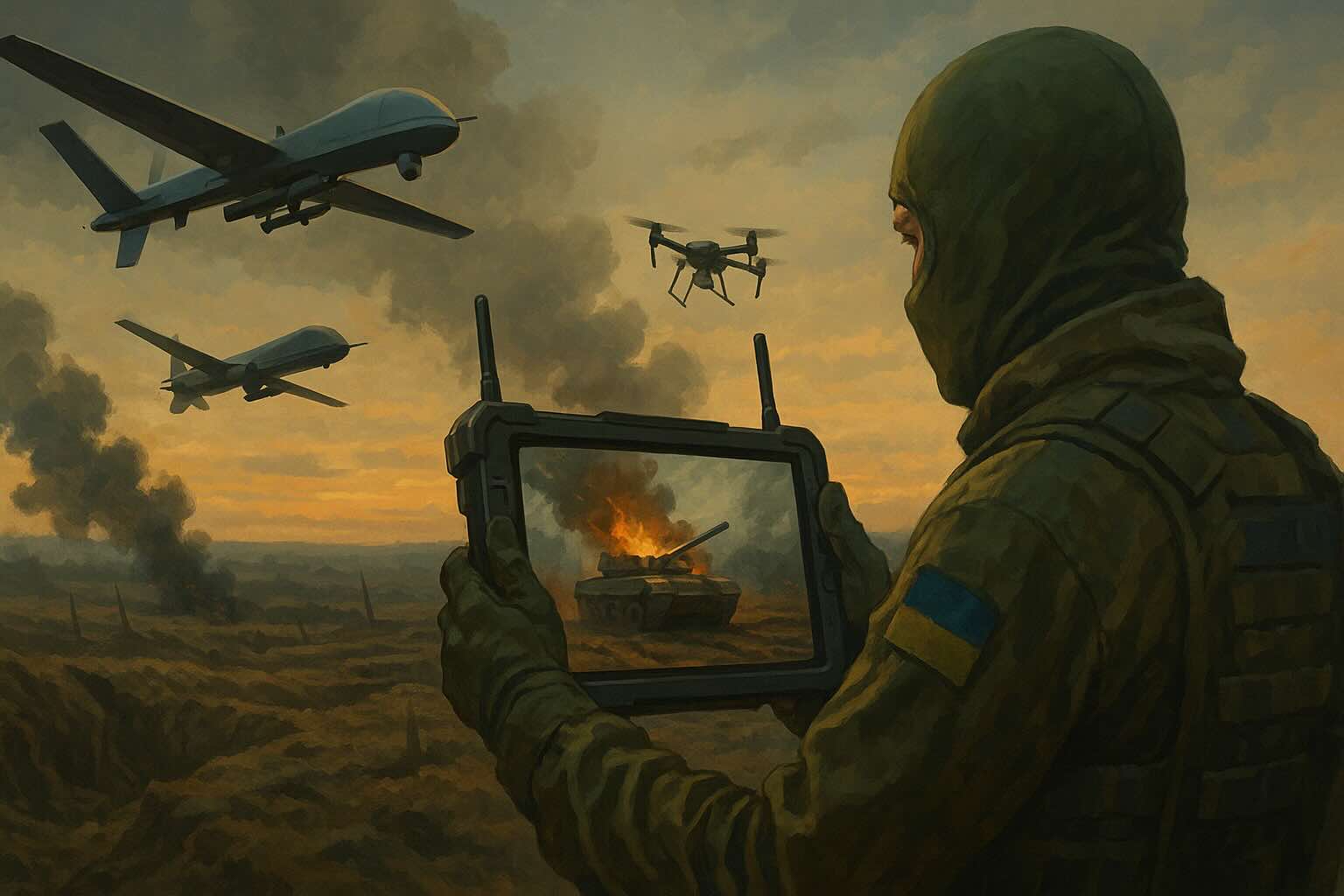


As the EU eyes accession, Ukraine is poised to reshape the continent’s military posture, offering both opportunity and strategic challenge.
Ukraine is rapidly emerging as a central pillar in Europe’s defence architecture, according to retired Austrian Brigadier General Gerald Karner, whose analysis underscores the strategic significance of Kyiv’s integration into the European Union. As Brussels and national capitals grapple with the evolving security environment, Ukraine’s future role as a military bastion against Russia appears increasingly inevitable — and increasingly critical.
The ongoing conflict with Russia has brought into sharp focus Europe’s vulnerability to both conventional and hybrid threats. For decades, the European security model relied on NATO’s transatlantic guarantee and the deterrent of American military power. However, the events of recent years, from persistent Russian incursions in eastern Europe to cyber and drone campaigns, have highlighted a need for stronger, more autonomous European capabilities. Ukraine, with its frontline experience and rapidly modernising military, is uniquely positioned to contribute to this recalibration.
Karner emphasises that Ukraine’s value is not merely geographic; it lies in the operational experience its armed forces bring. Ukrainian forces have been combat-tested in one of Europe’s most intense theatres of war, adapting to modern weapons systems and particularly to the widespread use of drones. This practical expertise, honed over years of conflict, could serve as a model for European militaries seeking to modernise and integrate advanced technology into their own forces.
Indeed, Ukraine’s proficiency in drone warfare, artillery coordination, and rapid mobilization could accelerate the EU’s broader military ambitions. For Brussels, integrating Kyiv into European defence planning offers both a buffer against eastern threats and a living laboratory for high-intensity combat experience that other EU states have long lacked. In effect, Ukraine is becoming Europe’s “frontline university” in modern warfare.
Karner’s analysis also stresses the importance of strategic autonomy. While NATO remains essential, European powers cannot rely indefinitely on U.S. support in every contingency. The implication is clear: Europe must develop the capacity to act decisively, even in scenarios where American involvement is limited or delayed. Ukraine’s integration into the EU — and its alignment with European military standards — strengthens this capacity.
The concept is straightforward but politically sensitive. Kyiv’s accession would necessitate investment in interoperability, command structures, and joint operational planning. European states would need to commit resources not just to maintaining their own forces but also to embedding Ukraine within a broader, cohesive continental strategy. The benefits are substantial, but so too are the challenges, particularly in reconciling national priorities with collective European security goals.
Ukraine’s potential accession to the EU carries profound political implications. Any formal integration will require at least a modicum of diplomatic resolution with Russia, a prospect that remains fraught with difficulty. Karner notes that a peaceful settlement of the current conflict — while elusive — would unlock the possibility of Ukraine contributing fully to European security structures. For European policymakers, the calculus is clear: delaying engagement risks both instability along the eastern flank and continued reliance on ad hoc measures.
Moreover, Kyiv’s integration would signal a decisive commitment by the EU to its eastern neighbours, offering a counterweight to Russian influence in the region. It would also send a signal to other aspirant states, particularly in the Western Balkans and the Caucasus, that Europe is serious about defending democratic values and territorial integrity.
Ukraine’s role extends beyond frontline combat capabilities. The nation’s defence industry, already modernising and increasingly aligned with NATO standards, could become a vital component of Europe’s military-industrial complex. Integration into EU procurement, standardisation, and research initiatives could accelerate the production of high-end equipment, drones, and munitions, providing European states with both capability and resilience.
This industrial integration also presents challenges. Supply chains must be secured, quality standards harmonised, and governance frameworks strengthened to ensure accountability. Yet, the long-term payoff is clear: Europe gains not just a frontline state but a strategic partner capable of sustaining high-intensity operations over time.
Despite these advantages, significant hurdles remain. Political friction within the EU, economic constraints, and the ongoing war in Ukraine complicate any immediate integration into Europe’s defence framework. Some member states remain wary of provoking Russia further, while others are concerned about the financial and logistical commitments required to fully embed Kyiv into EU operations.
Additionally, the risk of overstretch is real. While Ukraine brings combat experience, Europe’s broader military forces remain underfunded and unevenly modernised. Embedding a war-torn nation with ongoing operational commitments into this structure will require careful planning, sustained investment, and the political will to overcome entrenched scepticism.
Ukraine’s emergence as a key component of Europe’s defence architecture represents a strategic inflection point. For decades, the continent’s security policy relied on a combination of NATO guarantees, bilateral defence agreements, and limited operational readiness. Kyiv’s accession to the EU — and its integration into the European military-industrial and operational framework — promises a shift toward a more proactive, capable, and autonomous defence posture.
The stakes are high. Failure to incorporate Ukraine effectively risks leaving Europe exposed along its eastern frontier. Success, however, offers a transformative opportunity: a continent capable of defending itself, leveraging frontline experience, and deterring aggression without exclusive reliance on external powers.
In Gerald Karner’s view, Ukraine’s future within the EU is not merely symbolic; it is operationally essential. The nation’s frontline experience, modernised military, and strategic location provide Europe with a unique capability to defend its borders, maintain stability, and assert strategic autonomy. For policymakers in Brussels and beyond, the imperative is clear: support Ukraine’s integration, invest in interoperability and defence industry cooperation, and ensure that Europe can act decisively in a rapidly evolving security environment.
As the EU contemplates this historic integration, one thing is evident: Ukraine is no longer just a neighbour or a conflict zone. It is shaping up to be a cornerstone of European defence — a frontline bastion against threats to the continent’s security and stability.
Greater Cooperation with Ukraine in the Defence Industry as a Strategy to Avoid War